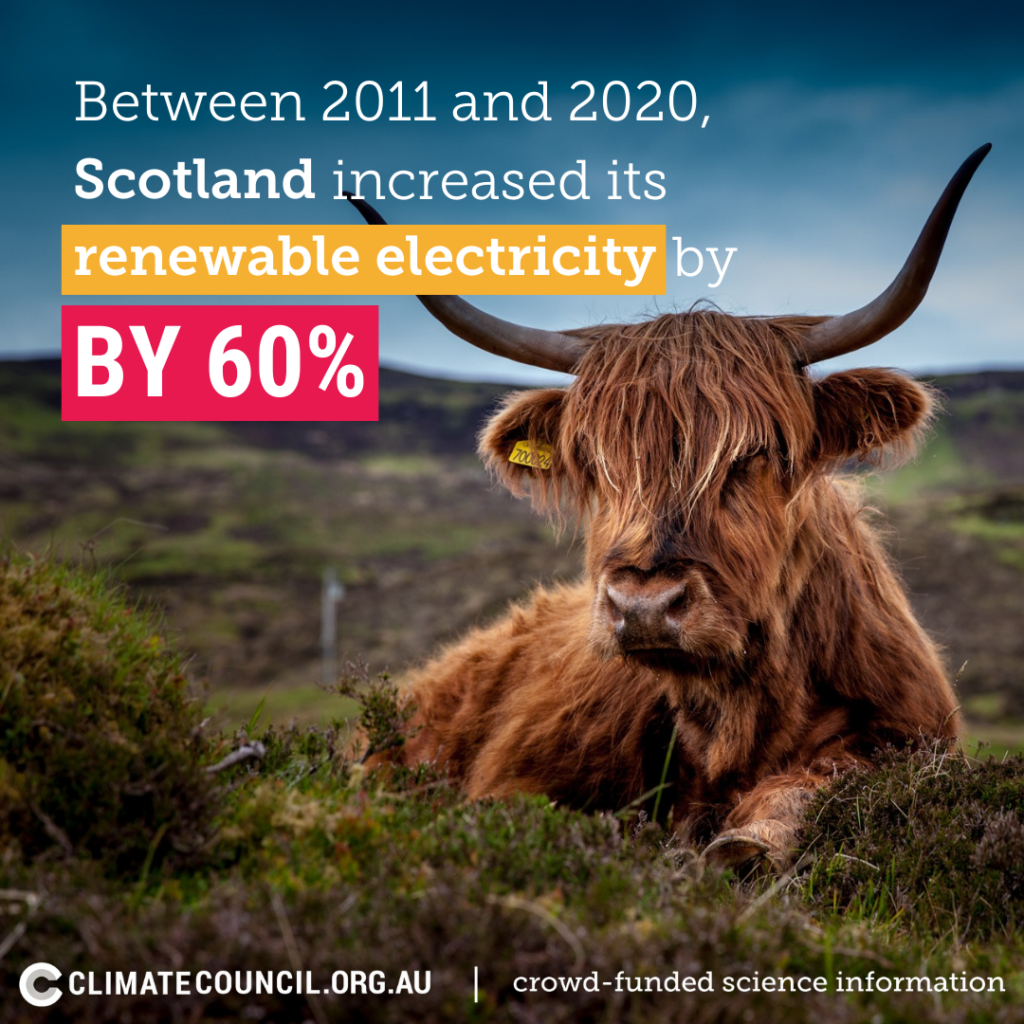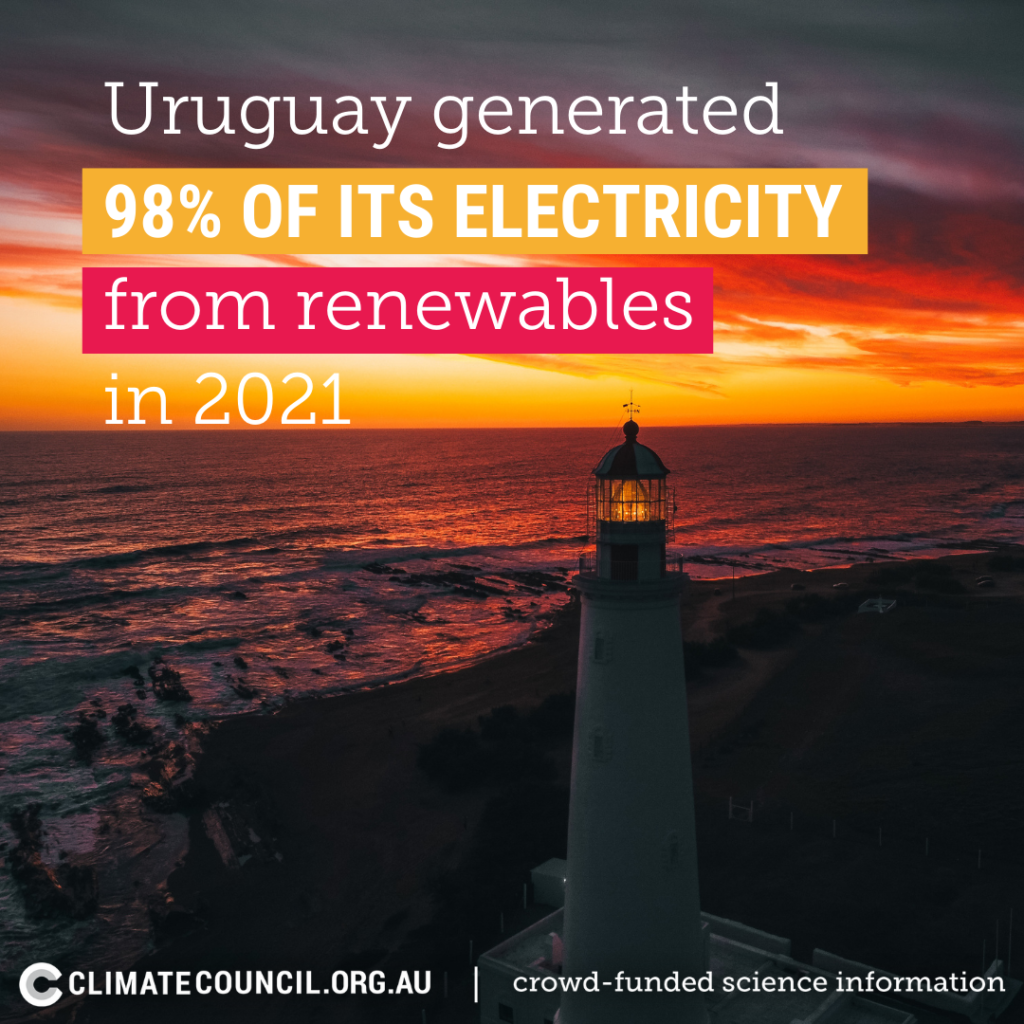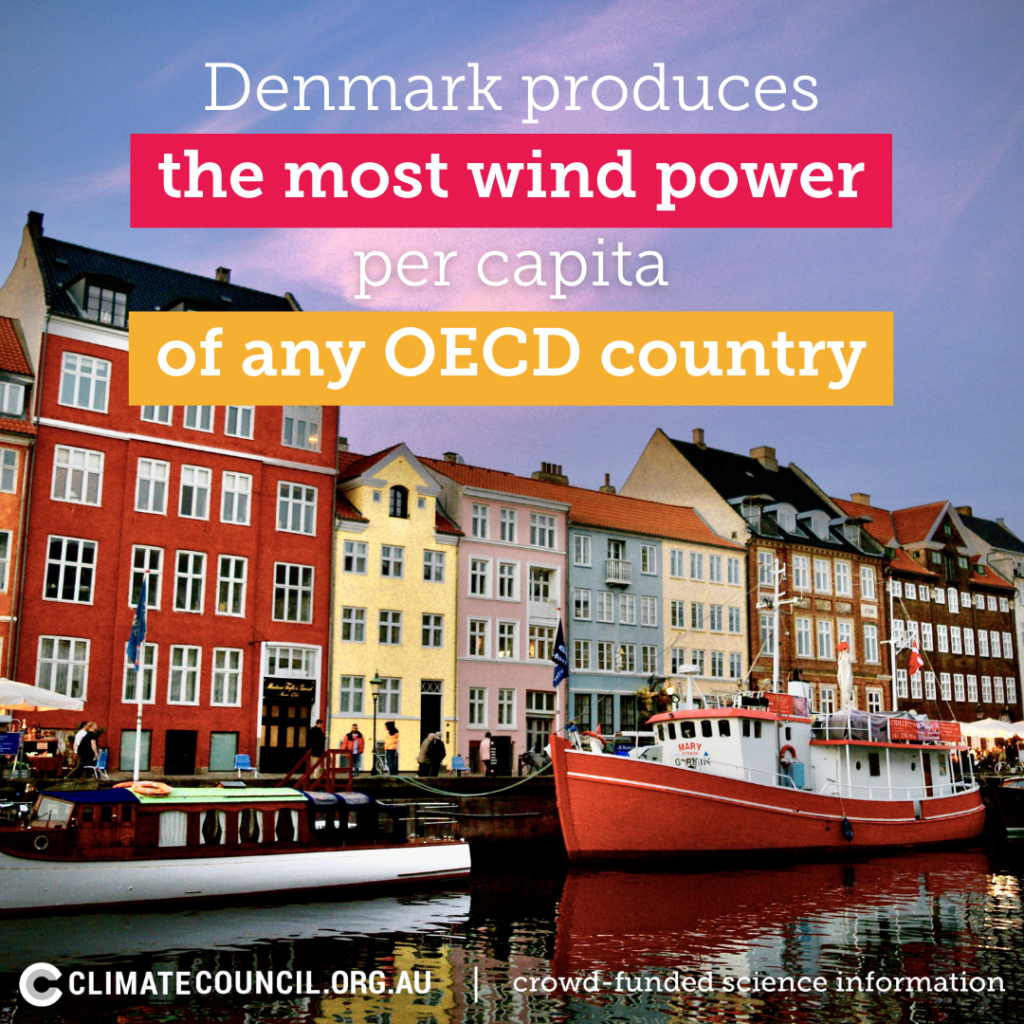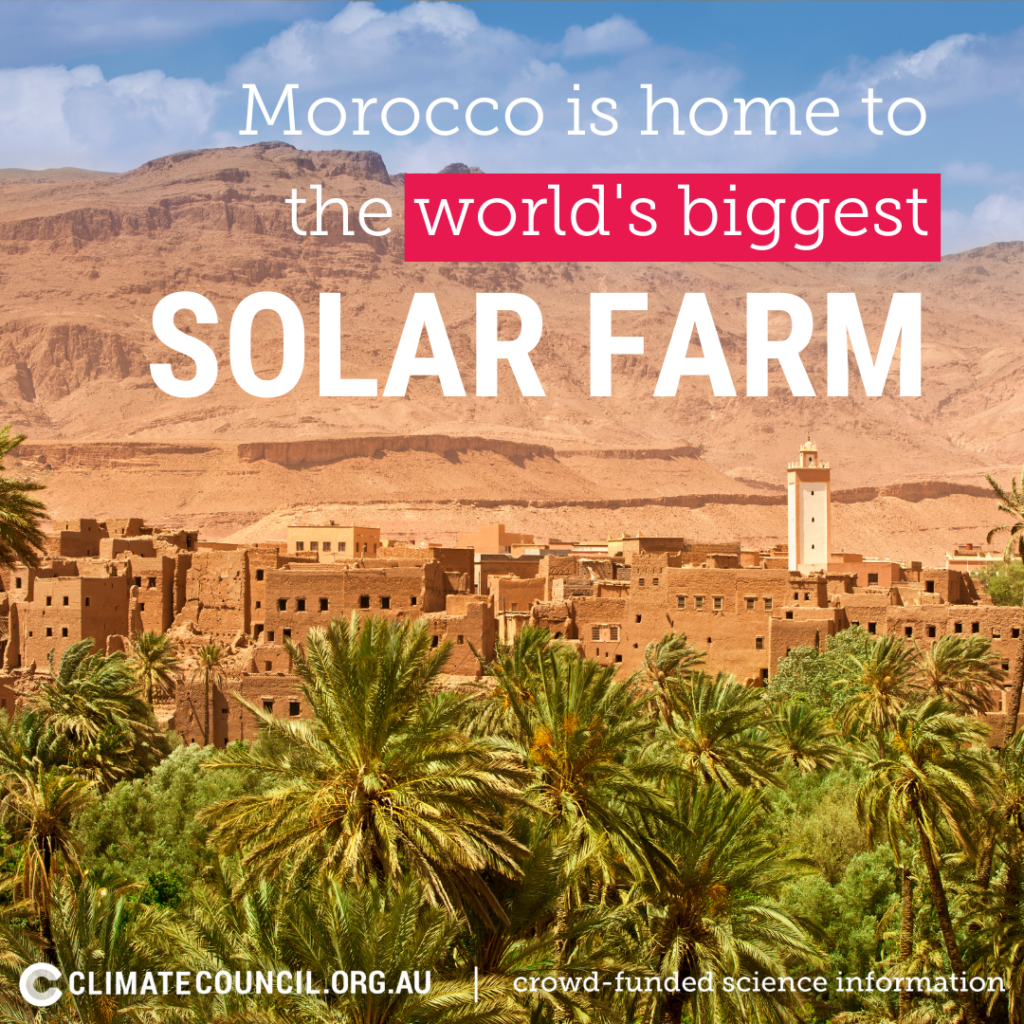The need for a swift transition to renewable energy is more urgent than ever. Climate change, driven by the burning coal, oil and gas, is already wreaking havoc on communities, economies and ecosystems right around the world. The easiest, quickest and most effective way of driving down greenhouse gas emissions and giving ourselves the best chance of kicking climate change’s butt is bymoving to an energy system based on renewables and storage.
Here are some inspiring countries that are using clever combinations of renewable resources and efficient, targeted policies todrive down their emissions.

Scotland
Great Scot! In 2020 Scotland produced over97% of their electricity needsfrom renewables. In 2011 renewables generated just 37% of national demand. And the best part is, they’re showing no sign of slowing. Next stop for the Scots: net-zero emissions by 2045, and investigating how to tackle the heat and transport industries too. Their strong start in the energy sector puts them in pole position to reach this goal and the next.

Uruguay
A 20 year effort has resulted in Uruguay generating98% of all their electricity from renewable sources in 2021. The majority of this comes from hydropower, complemented by wind, solar and biofuels. Uruguay is generating so much renewable energy that they’re able to export it to their South American neighbours, Argentina and Brazil. And they’re still on the lookout for extra ways to put it to use!

Denmark
Denmark getsover halfof its electricity from wind and solar power and in 2017, 43% of its electricity consumption wHow can we harness the power of the wind? Look no further than Denmark. They produce the most wind power per capita of any OECD country and are home to Kreigers Flak, Scandanavia’s biggest wind farm. Inaugurated in 2021, it’s expected to further increase wind production by 16%. Surprisingly, wind isn’t even the most widely used renewable source.Harnessing their strong agricultural sector, bioenergy supplies two thirds of Denmark’s renewable energy.

Morocco
Morocco has harnessed the power of its ample sun supply to become a world leader in solar energy. It’s now home to theworld’s biggest concentrated solar farm, the Noor-Ouarzazatecomplex in the Sahara desert. The farm is the size of 3,500 football fields and generates enough electricity to power a city twice the size of Marrakech.
When leaders set ambitious goals for renewable energy and support them with investments, thebenefits come fast.Switching to renewable energy doesn’t just drive down emissions, the transition also contributes to a secure economy, a growing jobs market and the creation of a reliable and resilient energy system.




